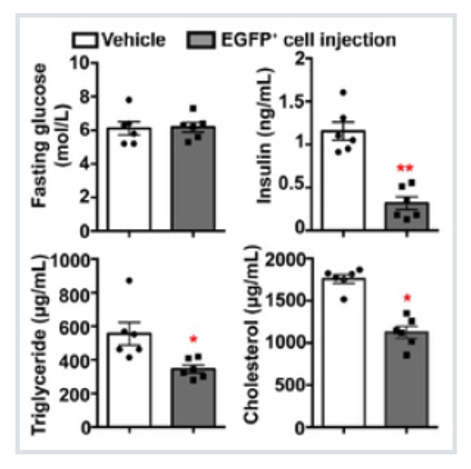Adoptive Immunotherapy Against Metabolic and Cancer Diseases
- Field
- Therapeutic Biologics
- Reference No.
- IP00864
Background
- There are few anti-obesity drugs available in the market. Many conventional anti-obesity drugs have been withdrawn from the market as they are often associated with life-threatening side effects. The global market size for obesity treatments are expected to reach around $15.6 billion by 2024.
- The global metabolic disorder therapeutics market size was valued at USD 49.65 billion in 2017 and is expected to grow at a CAGR of 7.56% from 2019-2025. It is estimated that more than half a billion individuals are to be affected by obesity and diabetes by 2040.
- The global cancer therapeutics market size is projected to reach $180,193 million by 2026.
Technology Overview
Regulatory T cells (Treg) are indispensable for immune homeostasis and have great potential for therapeutic applications. However, Treg are highly heterogeneous. HKU researchers have discovered a population of thymic Treg that express adiponectin, a well‐known insulin‐sensitizing, anti‐diabetic, anti‐inflammatory, anti‐atherogenic and anti‐tumorigenic hormone.
- Figure 1: Insulin, triglyceride and cholesterol reduced significantly in the intervention group after having high fat diet for 12 weeks

- Figure 2: Reduced breast tumor size

Stage of Development
- Adiponectin expressing Treg has been tested in mice for its safety and efficacy.
Benefits
- Significantly reduce weight gain and prevent inflammation, while not causing damaging effects to the liver.
- Shows anticancer activity.
- Facilitate the selection of T-cells within the thymic nurse cell complex for effective immune response.
- Eligible for various administration method (parental, rectal, topical, transdermal and oral).
Applications
- Treatment for obesity and obesity-induced metabolic diseases
- Anti-cancer therapy
- Immunomodulation therapy
Patents
- US Patent Application No. 16864774
IP Status
- Patent application submitted


